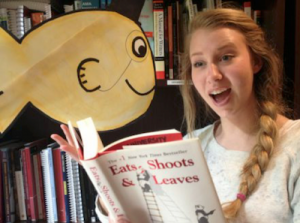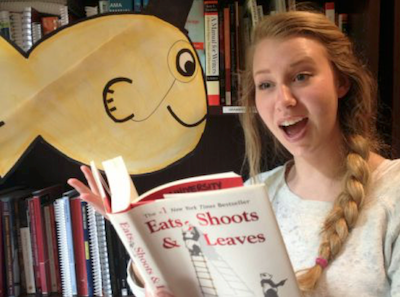Dear Writing Diary,
I have a huge problem. Your not going to believe it, but I don’t know the difference between your and you’re! There, their, and they’re also confuse me. I never know which one to use, and when people read my writing, their having a hard time understanding what I mean. Basically, my confusion is making my audience confused. All my teachers tell me, “Your going to need to fix this!” But they’re is no way I can fix these mistakes without some guidance. I am scared that when I get my grades back, their going to be all F’s. I can hear my Mom saying, “Your grounded” already. HELP! What should I do about this problem? Is their any way to salvage my writing? I would hate to be grounded over Spring Break because of some simple word confusion.
Sincerely,
Is They’re Hope?
Dear Is THERE Hope?,
The good news is that THERE is hope. YOUR problem is easier to solve than you think. YOU’RE also not the only one who has trouble with homonyms (homophones to be more specific), or words that sound the same but are spelled differently with different meanings. THERE are a few simple rules regarding commonly confused words. Many people confuse words like their, there, they’re, your, and you’re, because they sound that same but mean very different things. Correcting these errors will strengthen your writing and make it easier for YOUR audience to understand exactly what you mean.
They’re, there, and there are some of the most commonly confused words in the English language. However, the rules for remembering which one to use are quite simple.
- They’re is a contraction of they are. Example: Fred and George said they’re going to meet us at Boone Saloon for Taco Tuesday.
- There refers to being in or at a place; it’s the opposite of here. Example: The bananas for feeding our pet gorilla are over there.
- Their is the possessive form of the plural pronoun they. Example: They are going to get dance until their bodies won’t let them dance anymore.
Your and you’re also have easy rules to help you figure out when to use each.
- Your is the possessive of you. Example: I really like your bright pink camouflage jacket.
- You’re is a contraction of you are. Example: You’re the best foosball player this side of the Mississippi River.
If that doesn’t help, you come to the University Writing Center and grab a handout on comma usage or talk to a consultant!
Peace and a Piece of Cake,
Writing Diary

